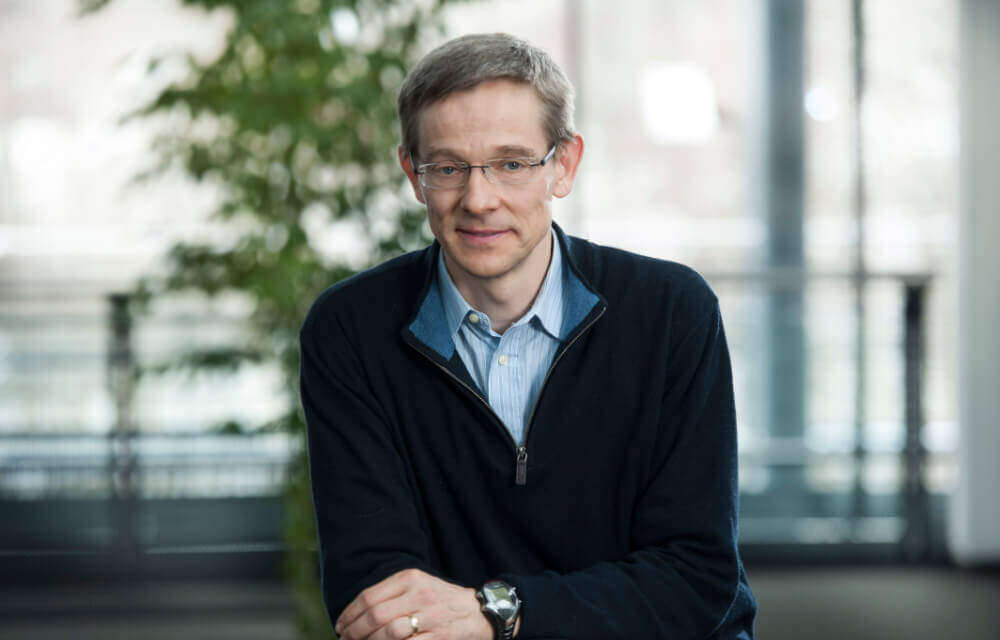Saarbrücken becomes part of the European network ELLIS for research on AI and machine learning

Prof. Bernt Schiele, Director at the Max-Planck-Institut for Computer Science and Professor at Saarland University ©MPI
Across Europe, leading researchers in the field of artificial intelligence (AI) and machine learning have joined forces in the Ellis network. They have two goals: To establish top international research on these topics in Europe and to strengthen Europe economically in this field. This is to create a counterweight to the current dominance of US and Chinese AI initiatives.
Over the next five years, the Saarbrücken computer scientists will focus on scientific principles and security aspects of AI and machine learning. These include, for example, the question of how artificial intelligence can make comprehensible decisions that meet even the highest security requirements. “We have committed ourselves to the core objective of the ELLIS research network and want to investigate how artificial intelligence and machine learning will affect mankind in the future and how these developments can be reconciled with our societal values. For this, we have sought contact with industrial partners from the very beginning. We also want to train and connect the next generation of researchers,” says Professor Bernt Schiele, Chairman of the newly established Ellis Unit SAM (Saarbrücken Artificial Intelligence & Machine Learning).
Part of the initiative is to ensure diversity in the research teams in terms of scientific origin, gender, ethnicity and status in scientific careers. Despite its short life span to date, the initiative already has the support of renowned European companies such as Audi, AVL, Bayer, Bosch, Deep-Mind, Greiner, Porsche and Siemens as well as U.S. companies such as Amazon, Facebook, Google, NVIDIA and Qualcomm.
In September 2019, the first call for projects was issued. After the usual evaluation process (peer review), 17 Ellis units were established, one of which is Saarbrücken with four participating institutes on or near the university campus. The six Saarland scientists whose application “SAM” was successful in the selection process are Mario Fritz (CISPA), Manuel Gomez-Rodriguez and Krishna Gummadi (Max Planck Institute for Software Systems), Bernt Schiele and Christian Theobalt (Max Planck Institute for Computer Science) and Isabel Valera (Saarland University).
In the light of the development dynamics of machine learning and artificial intelligence and the importance of these research areas for the future, scientists from all over Europe have joined forces in the ELLIS initiative. The initiative is, so to speak, a grassroots movement that originates and is supported directly by the scientific actors, i.e. it is not an on national or european level initiated project. The urgency of this research task is confirmed by one of the leading scientists in the field of artificial intelligence, Geoffrey Hinton, Turing Prize winner and Professor Emeritus of Computer Science at the University of Toronto. From him comes the statement: “Deep learning (multi-layered learning) is at the heart of the amazing progress we are seeing in AI today. Companies like Google, Facebook, Amazon, Apple and Microsoft are investing billions in the development of this technology. If Europe is to keep up with North America and China, it must focus its huge investment in AI on deep learning.
Ellis Saarbrücken https://www.ellis-unit-sam.de
Ellis Society https://ellis.eu
Bernt Schiele https://people.mpi-inf.mpg.de/~schiele
Christian Theobalt https://gvv.mpi-inf.mpg.de/
Krishna Gummadi https://www.mpi-sws.org/people/gummadi/
Manuel Gomez-Rodriguez https://www.mpi-sws.org/people/manuelgr/
Mario Fritz https://cispa.saarland/group/fritz/
Isabel Valera https://ivaleram.github.io
Press Contact:
Bertram Somieski
Max-Planck-Institut für Informatik
Tel +49.681.9325-5710
somieski@mpi-klsb.mpg.de
Background Saarland Informatics Campus:
800 scientists and about 2000 students from more than 80 nations make the Saarland Informatics Campus (SIC) one of the leading locations for computer science in Germany and Europe. Five world-renowned research institutes, namely the German Research Center for Artificial Intelligence (DFKI), the Max Planck Institute for Computer Science, the Max Planck Institute for Software Systems, the Center for Bioinformatics and the Cluster for “Multimodal Computing and Interaction” as well as Saarland University with three departments and 21 degree programs cover the entire spectrum of computer science.
Die Öffentlichkeitsarbeit am Saarland Informatics Campus wird unterstützt durch das Kompetenzzentrum Informatik Saarland, gefördert aus Mitteln des Europäischen Fonds für regionale Entwicklung (EFRE) und Mitteln der Staatskanzlei Saarland.


